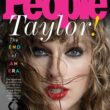The hype runs deep. But Wednesday and Thursday this week really could become the most humbling days of Rupert Murdoch’s life, as he prepares to face the UK’s Leveson judicial inquiry. He knows there will be none of the slanted, semi-competent questioning and posturing MPs of the Parliamentary enquiry that tested his self-control in July. And there won’t be any need for Wendi Murdoch to comfort her husband or defend him from custard pies. But, in the quiet calm of court 73 at London’s Royal Courts of Justice, there will be forensic interrogation by barrister Robert Jay and Lord Justice Leveson who (unlike the parliamentarians) will not miss the odd slip-up like Murdoch losing his studied humility in order to blame “our enemies” for his woes, or to claim unreal distance from the detail.
Leveson will be trying to understand News International’s scheming with police and phones and (crucially) the cover-ups, cash payments, ‘corporate amnesia’, and obfuscation. Viewers watching the hearings live (courtesy of one Sky News) will be trying to fathom the man who has dominated British life for longer than any politician.
Some task. But you could do worse than flash back to Australia in the 1960s, a decade after Murdoch had inherited a small-town Adelaide newspaper from his Scottish-born father. Rupert flew back from his UK studies to claim much less of an inheritance than he had expected. But Sir Keith Murdoch, who was nicknamed “Lord Southcliffe” after endlessly exploring plans for newspaper world-domination with Lord Northcliffe, left Rupert a little more than the newspaper. In his will, Sir Keith actually exhorted his son and heir to build an international newspaper empire. Rupert got the message and, within a few years, had made his first big leap – to Sydney.
There, on a June night in 1960, the young Murdoch got his first taste of the rough-tough business frontier of 1960s Sydney – and the world got its first glimpse of the outsider’s ruthlessness. On that night, he bankrolled thugs to violently evict the young Kerry Packer and his brother Clyde from a printing press which had been forcibly possessed by the Packers. Murdoch had bought Cumberland Press, publishers of suburban Sydney newspapers. The dominant Packer and Fairfax newspaper families united to repel the outsider which led to fights over printing capacity with people so used to getting their way that they had little regard for legal niceties. Murdoch’s street-wise stroke was to get his sports editor, a former professional boxer, to square up to Kerry Packer, himself a useful amateur boxer. The professional left Kerry and Clyde Packer bruised and bleeding after a prolonged brawl. Murdoch’s thugs won the night and got their printing press back. The Oxford-educated, opera-loving Rupert Murdoch heard it blow-by-blow from the comfort of his Sydney home, courtesy of a walkie-talkie toting employee.
That was the start of 50 years of no-holds-barred Packer-Murdoch rivalry (and sometimes collaboration) with the two families dominating media, business and political influence across Australia.
Four years after the brawl, Murdoch’s Sydney Daily Mirror cast some more light on his developing tabloid-centric newspaper business. In March 1964, the Daily Mirror reprinted – without permission – the diary of a 14 year old girl under the lurid headline “Sex Outrage in School Lunch-Break”. As a result, the girl and her “boyfriend”, one Digby Bamford, were expelled from school. For Murdoch’s readers, that is where the story ended. It was never reported that, the following day, young Digby Bamford hanged himself. Nor was it ever reported that the child welfare department stated the 14-year-old girl was still a virgin and that her diary had been a fantasy.
But Murdoch was learning fast how to make devil-may-care tabloid profits. By the end of the 1960s, he had arrived in London to take control of the News of the World and then The Sun, and was truly on his way to create the empire his Father had dreamed of. Murdoch, like many another leader of a dynastic business, has looked forward to being able to hand on to his offspring a business that was hundreds of times larger than his own inheritance (indeed, like Kerry Packer did). But now, 50 years after his father’s death, it’s all slipping away. There now seems little doubt that Rupert Murdoch will soon be forced to hand over the executive reins at News Corp. More certain still, his successor will not be a Murdoch; and law suits and prosecutions may pursue the family for years.
Aside from the rash of criminal inquiries, civil suits and regulatory investigations, there are now clear signs that Rupert Murdoch is losing it. Some shareholders were alarmed at how he handled James Murdoch’s recent departure from the chairmanship of BskyB. In a misguided attempt to keep alive News Corp impatient ambitions to acquire 100% of BskyB and to help his shattered son save “face”, he ensured James stayed on board as a non-executive and that News International CEO Tom Mockridge became Deputy Chairman of BskyB.
Shareholders fear that this continued demonstration of the closeness of News International/ Corp to BskyB (the broadcaster has even been referred to as being “part of News International” in evidence to the Leveson hearings) has increased the likelihood that regulator Ofcom will decide News is not a “fit and proper” person to hold a broadcast licence and must, therefore, sell down its existing 39% stake. Taking News International directors off the BskyB Board might have made it easier for the shareholding to be retained. Now, it may be just a matter of time and prosecution process before Ofcom steps in and wrecks the party. Suddenly, it’s not just the old-fashioned, time-to-divest newspapers that are dragging down News Corp.
Shareholders had been purring (too soon) at the prospect of their shares bouncing with a divestment of the troublesome newspapers. They now face the nightmare of losing one of the company’s most valuable investments (BskyB) but still being saddled with the loss-making and legally-tangled UK newspapers. The mounting legal challenges, expensive settlements, and widening accusations – in the US as well as the UK – are enough to persuade even the most loyal News Corp shareholders that Rupert Murdoch is fast becoming a liability. Any day soon, we may see criminal charges against executives either side of the Atlantic or both. And the regulatory authorities are watching and waiting while the range of investigations spread – and insiders seek plea bargains that will fuel the flames. These are increasingly dangerous times for News Corp and shareholders know it.
Suddenly, the problem is not just the disgraced James Murdoch, it’s Rupert. His critics would say it’s also pay-back time for a man who has been so involved in the ways and means of his newspapers. For someone who has a genuine love of newspapers and the media generally, Murdoch has always had some odd views on journalism, much of which he labels the “liberal media”. While he built his money-spinning UK business in the 1970s when the world was hailing the investigative journalism of the Watergate scandal, Murdoch scorned it as “the new cult of adversarial journalism”. He must have seen his nemesis The Guardian coming.
Murdoch has consistently used his money to fund (mostly) right-wing causes and even to campaign against climate change and HIV-Aids research. He has positively “encouraged” his own media to take up adversarial positions. But his beliefs are not a neat package. Murdoch’s perpetual view of himself as an outsider has helped him juggle his political allegiances, successively helping “outsider” opposition parties into power in Australia and the UK. His touch has been much less impressive in America where Fox News was first to laud Sarah Palin (before she had even met John McCain), add volume to the Tea Party, link Barack Obama ludicrously with islamic terrorism, and to back the latest Republican loser Rick Santorum.
The consistent Murdoch theme is his need to fight the “liberal media” , which is a passionate cause and also a business model for the news operations. His self-serving attacks on the BBC in the UK and its ABC counterpart in Australia are part of that. (Even the notoriously unrepentant Rupert Murdoch may now be regretting his campaign against Ofcom.)
That invective, in many ways, is the key to Murdoch’s current trials. In giveaway comments and actions this past few years, he has allowed himself to be distracted dangerously by the spectre of the people and organisations he regards as enemies. Nobody can doubt the ruthlessness that punctuates Murdoch’s business activity, right from that 1960 Sydney brawl to Machiavellian muscling with politicians and power brokers ever since. Wasn’t that just such a clever strategy to put Andy Coulson (as well as David Cameron) into Downing Street ahead of revealing his bid for BskyB? It almost worked.
But now the Murdoch dynasty at News Corp has been laid low, not by the founder’s business strategy but by a corporate ethos which encouraged and tolerated many things in order to defeat his “enemies”. In April 2011, James Murdoch cheered his Dad when said he had put the phone hacking scandal “in a box”. The obvious interpretation now is that he had buried the truth rather than cleaned the stables. It was, of course, a premature celebration, but also a clear sign of how Rupert Murdoch, even then, felt the risk to the company was outside not inside.
Journalists putting together Murdoch business obituaries (ready for publication this summer?) are busy toying with imagery of Richard Nixon whose paranoia wrecked his presidency and under-stated legacy. The Leveson inquiry on Wednesday and Thursday might just yield Rupert Murdoch’s Frost-Nixon moment.







Good read Colin, keep ’em coming
Thank you Colin for enlightening us.
Look forward to reading more in the near future.
Kind regards.
Very interesting read. The first part of the article concerning the POackers was very eye opening. What a cowboy nation they came from. Let’s hope the world has changed!!
Thanks Colin